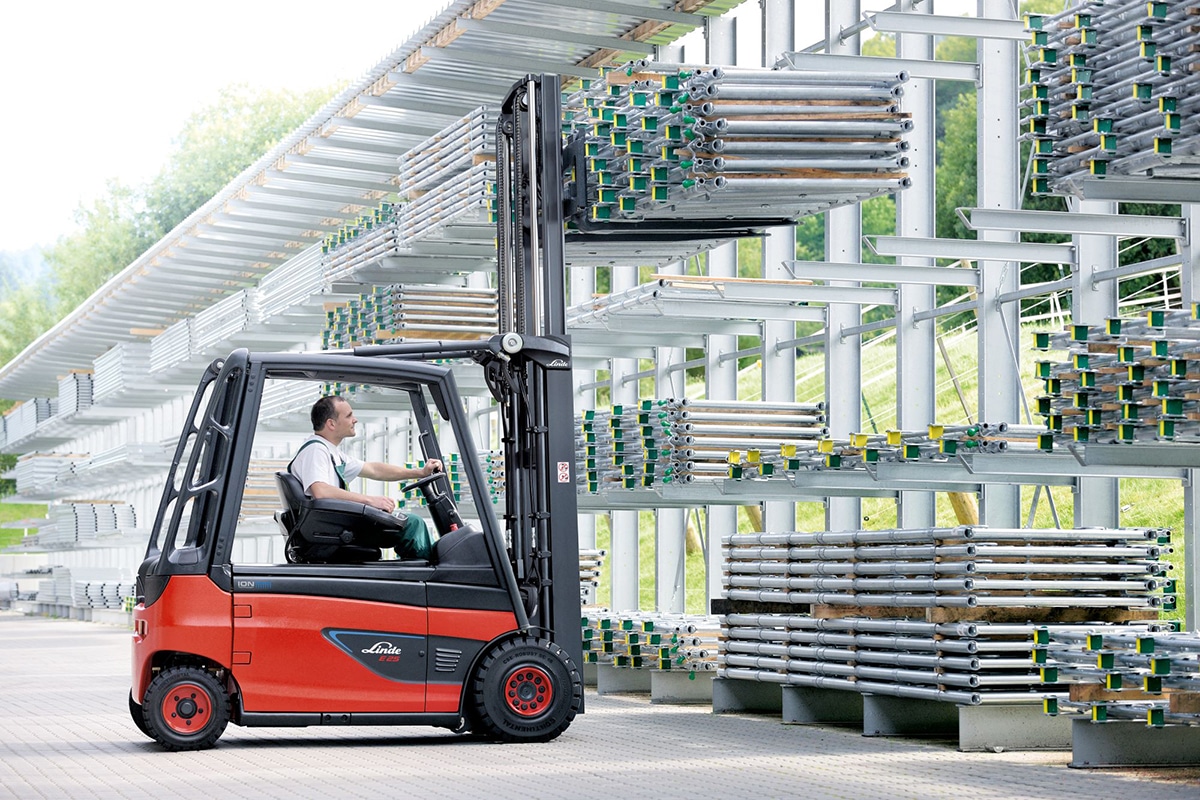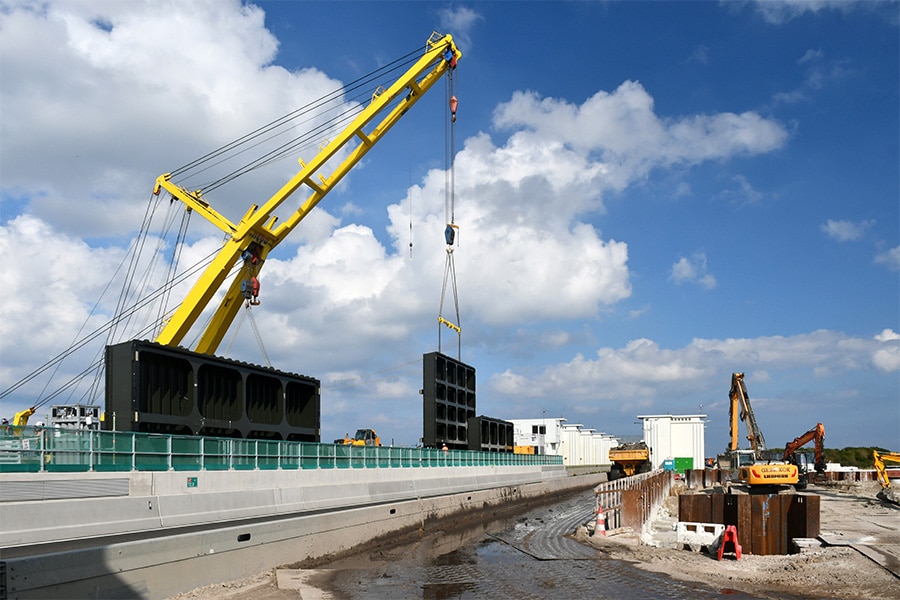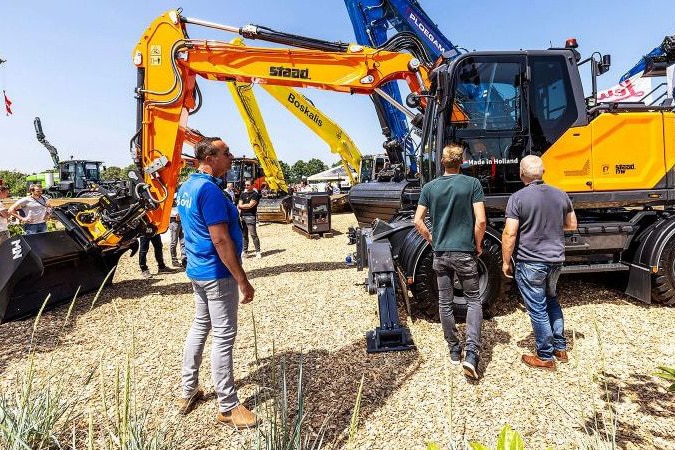
'Asphalt industry needs government to change'
When it comes to reducing CO2-emissions, BAM Infra Asfalt is a leader in its sector. The company has several projects for it, helping to achieve the climate goals set by the central government. One example is the BEAMER project, for which BAM received a grant from the Netherlands Enterprise Agency (RVO.nl). 'Sustainable asphalt production is the future. So we are fully committed to its development.'
GRANTS FOR CO2-REDUCTION
By 2050, the Netherlands must reduce CO2 emissions compared to 1990 levels. By 2030, there must already be a 49 percent reduction. This is stated in the climate goals. Based on these goals, the government sets requirements for industrial companies. It supports them in meeting these requirements - with knowledge, networks and subsidies.
New grants
Through the Rijksdienst voor Ondernemend Nederland (RVO.nl), the government offers several new subsidies. Unique and one-off are the subsidies Demonstrating Energy and Climate Investment (DEI+): Circular Economy and the Accelerated Climate Investment Industry (VeKI).. These subsidy schemes contribute to the accelerated achievement of the CO2-reduction targets of 2030. Additionally, a whole new type of scheme opens in 2020 that supports innovative integrated solutions for industry: the Mission-Driven Research Development and Innovation (MOOI) scheme.
Interested?
RVO.nl helps you further. Through its grants and funding guide you will immediately find out which grant for CO2-reduction your organization is eligible for. You will also see there how you can make use of the knowledge and network of RVO.nl.
Turning old asphalt into new asphalt again - at a much lower production temperature than is usual. That's what the BAM Energy Efficient Asphalt and Mastic Recycling (BEAMER) project is all about. 'And that fits well with our sustainability vision,' says Ernst Demmink, technical innovation manager at BAM Infra, the infrastructure arm of Royal BAM Group. 'The BEAMER project helps our CO2-emissions greatly reduced.'
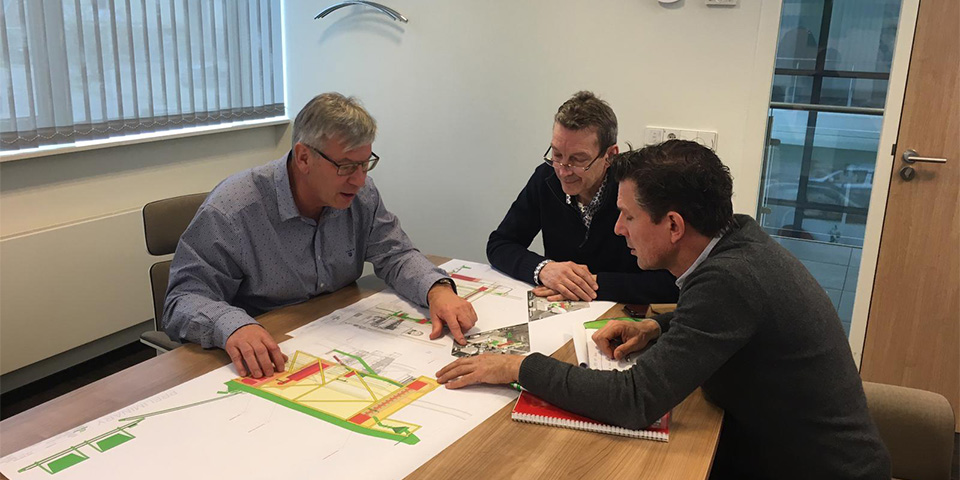
Intended change
'As BAM Infra, we offer innovative and sustainable solutions for road construction,' says Demmink. 'Asphalt production is only a small part of the BAM Group, the largest construction company in the Netherlands. Yet we are responsible for about 15 percent of the CO2-emissions of the entire BAM company. This is less crazy than it might sound: the asphalt industry is very energy-intensive, emitting a lot of CO2 out. But however explainable, it is something we do want to change.
BAM Infra has completed several innovative projects for this purpose. For example, the Low Energy Asphalt Concrete (LEAB).-project, in which asphalt is produced at 100°C instead of 170°C. But also the Low Emission Asphalt Pavement (LE2AP).-project, in which asphalt is made from primarily recovered raw materials with less energy and released emissions. The BEAMER project, for which BAM Infra is the Energy and Climate Innovation Demonstration (DEI+) grant received, builds on the success of these projects. The focus is on recycling, energy conservation and CO2-reduction.
Lower energy consumption
In the BEAMER project, BAM Infra makes low-temperature asphalt that consists largely of recycled raw materials. With this new production process, the company saves 35 to 50 percent on its energy consumption and CO2-emissions. Demmink: "Asphalt is made from stones, sand and special glue. We heat that and that takes a lot of energy. Whereas "normal" asphalt is made at a temperature of 170°C, in the BEAMER project we do it about 70° lower - at 100°C. This "low-temperature asphalt" therefore consumes much less energy and therefore produces less CO2-emissions. In addition, we make 95 percent of the new asphalt from old asphalt. That's a hefty percentage; with regular asphalt, reuse of old asphalt is at 38 percent.'
The large potential decrease in CO2-emissions in this new approach, is a reason for BAM Infra to start BEAMER soon. 'We will start building a prototype BEAMER installation in 2021. This will be followed by a two-year testing period. The asphalt then has to be in place for a few years before we can assess the real results of the asphalt. If successful, we will scale up the project and can implement the system in large-scale asphalt projects!
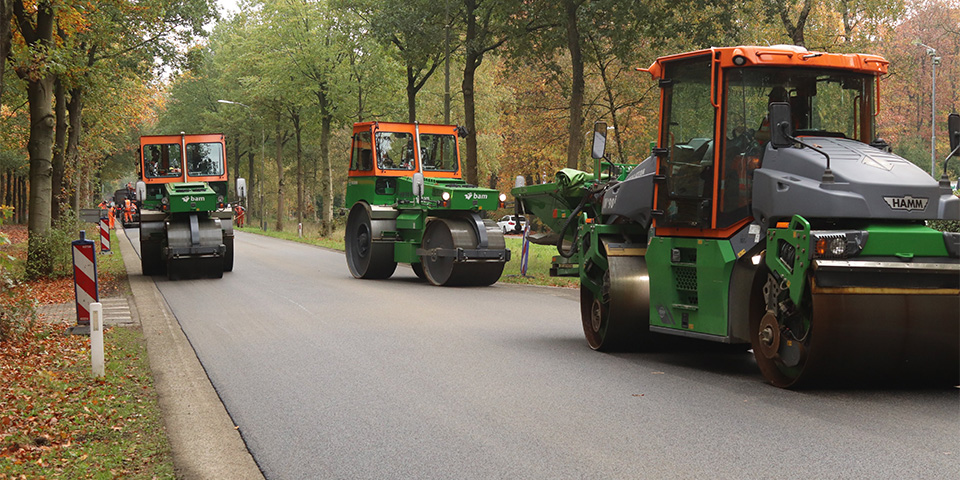
Necessary development
BAM Infra typically consumes about 13 million cubic meters of gas a year. The BEAMER project will put an end to that. Demmink: "We have to 'get rid of the gas'. That is why we will soon power our new machines with hydrogen. Green power was not an option: the energy grid cannot handle that on this scale. And other forms of energy do not contribute to CO2-reduction. In the BEAMER project, BAM Infra is taking the first step toward heating with hydrogen. This is the future. We just have to develop this.'
Demmink recognizes that reinventing processes in his sector is not easy: "From the government we are instructed to be more circular. But heating old asphalt in particular releases gases again. We can't just let those fly. In the BEAMER project, we are introducing an afterburner with additional emission-reduction technology for that purpose. That's another hefty investment. The estimated cost of the project is now around 3.5 million euros. Fortunately, we are receiving over 700,000 euros in DEI+ subsidy from RVO.nl. And we are also looking into other subsidies. The agency AC Advisors helps us with this; they have expertise in that area that we don't have.
Conservative industry
Dutch asphalt production stands at about 8.5 million tons of asphalt per year. BAM Infra makes about 1.5 million tons of that. With 16 kilos of CO2-emissions per ton of asphalt, there is a lot of carbon dioxide to be reduced, but we are the only asphalt producer that is really working with CO2-reduction is in progress," Demmink states. 'The asphalt industry is a very conservative industry. At BAM, for example, the possibility of making high-quality low-temperature asphalt has existed for ten years. Yet less than one percent of new asphalt in the Netherlands is made this way. That has to be much higher. The asphalt industry can thus make a huge contribution to meeting its clients' climate goals. And with this asphalt, that can be done quite easily. It is no more expensive and at least as good in terms of quality, so why shouldn't we all do it? That way we can achieve the climate goals as an industry a lot faster, too.'
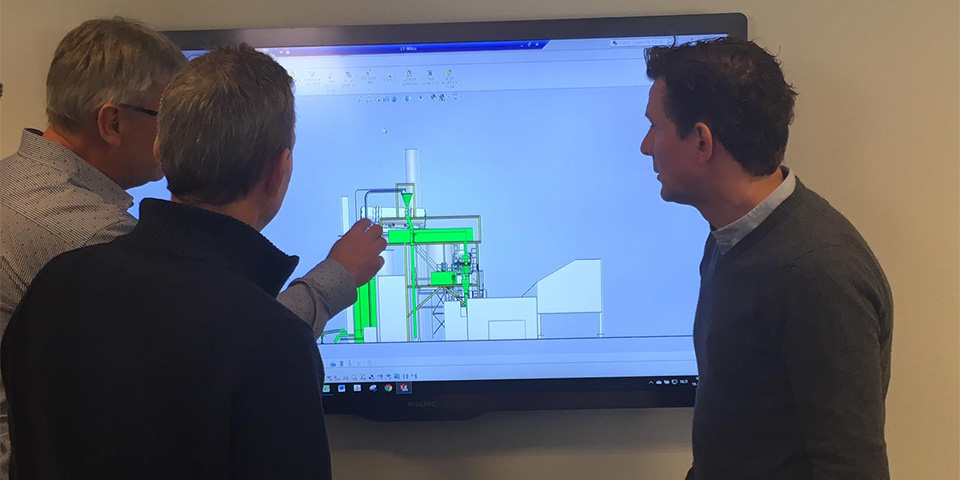
Approaching deadline
As far as BAM Infra is concerned, the government can put more pressure on this. Demmink: 'A lot is already happening. For example, there are more and more government subsidies for innovations like ours. There are also many people at RVO.nl with a background in business and knowledge of business; they like to think along with us about innovation and sustainability in order to achieve the climate goals.' As technical innovation manager, Demmink sees that the climate goals are project-transcending, but the government's procurement policy often is not. 'Scaling up innovations requires more than subsidies alone. Now, for example, there is still a bottleneck in procurement policies where innovative techniques like ours do not have enough competition to be included in the application. In addition, Demmink feels that the focus of those tenders is still too much on price. 'Not, for example, on the fact that with our circular BEAMER project we can make significant savings on CO2-emissions.
'The transition we are in as the Netherlands concerns us all,' Demmink says. And with ten years left until 2030, he sees the deadline approaching. 'The time for talking is over now,' he says. 'With support from RVO.nl and its subsidies, we are already being helped a lot. It is now time for real steps to be taken.'
